An online platform that allows you to create websites without writing or editing code is a website builder. It is relatively easy to work with a website creator since they provide a what-you-see-is-what-you-get editing GUI, which ensures what you see when editing your website is what you would see if your website has been live and viewed in a browser. The best website builders have many features, including professional website templates, drag-and-drop editors, and onboard’ hosting services that are simple to work with.
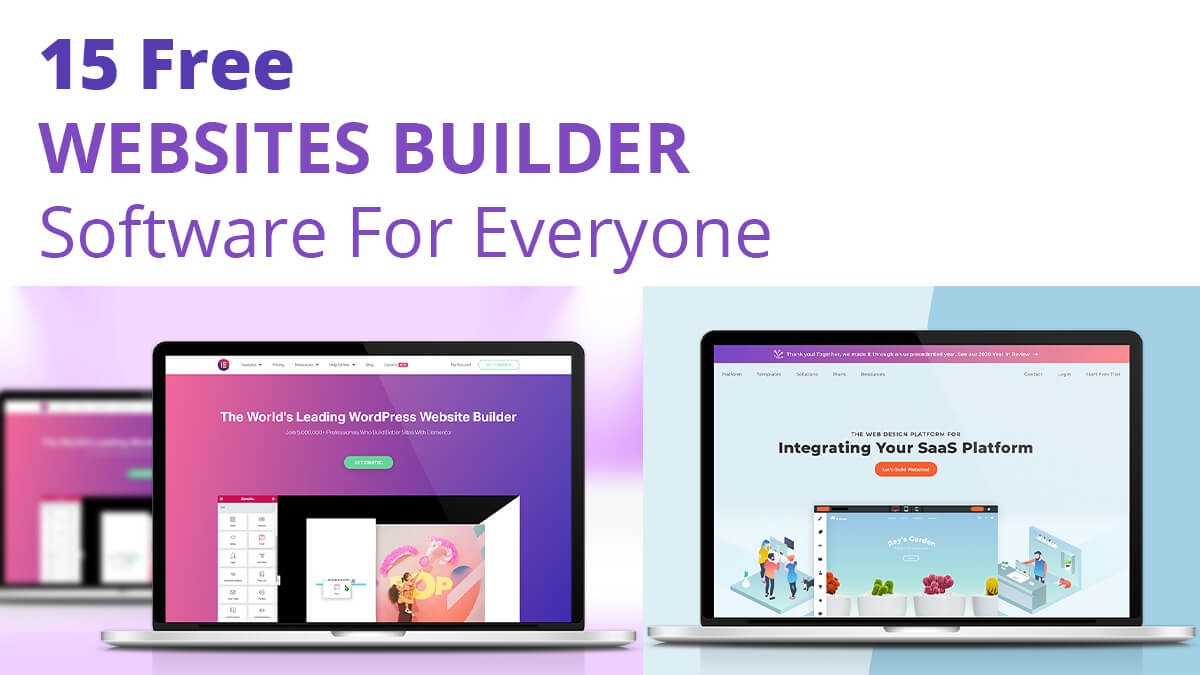
For small business owners and entrepreneurs, finding a cost-effective approach to managing and marketing their business’s online presence, site builders such as Wix and Squarespace are perfect. Website builders make it simple to create a website. They also provide configuration of hosting and domain names, SEO settings, and marketing resources such as social media and form builders’ integrations. Some site builders also provide a CRM and email marketing solution that integrates with your website. For instance, Wix does this with its WixShoutOuts email marketing platform and a bundle of business tools for Wix Ascend.
Without a fully functioning, responsive, SEO-compatible website, it isn’t easy to sustain a profitable company – but you don’t have to fork out the big bucks to buy one. There are plenty of choices for free construction and design of a website, many of which require little to no coding knowledge. And these website builders, especially for small companies or personal brands, are often comparable in quality to their paying alternatives. SEO advantages, embedded analytics systems, mobile optimization, and professional-looking models are provided by the free website builders we share today. These are the next best thing if you’re on a tight budget and can’t quite swing the paying builders.
1. Wix
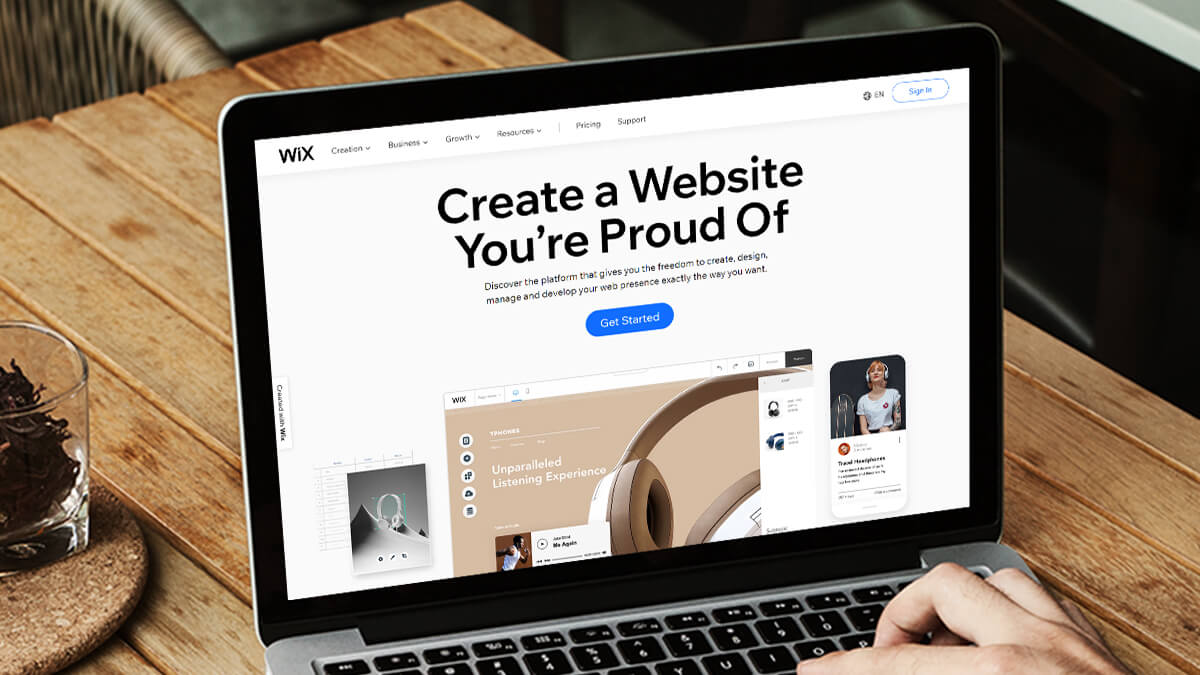
Wix, with 110 million users, is one of the most popular free website builders out there. A quick drag-and-drop editor and a complete set of professional-looking models are available on the fully hosted site, which is well suited for small businesses, online retailers, restaurants, or personal portfolios. To track your site, Wix provides built-in Google Analytics and also offers additional apps for individual preferences. Wix can also build your site for you if you like. The only drawback of the free edition of Wix is that it doesn’t come ad-free, and it will have a prominent Wix ad on each page of your web. Ad-free is an option only if you are paying for the premium edition.
2. Weebly
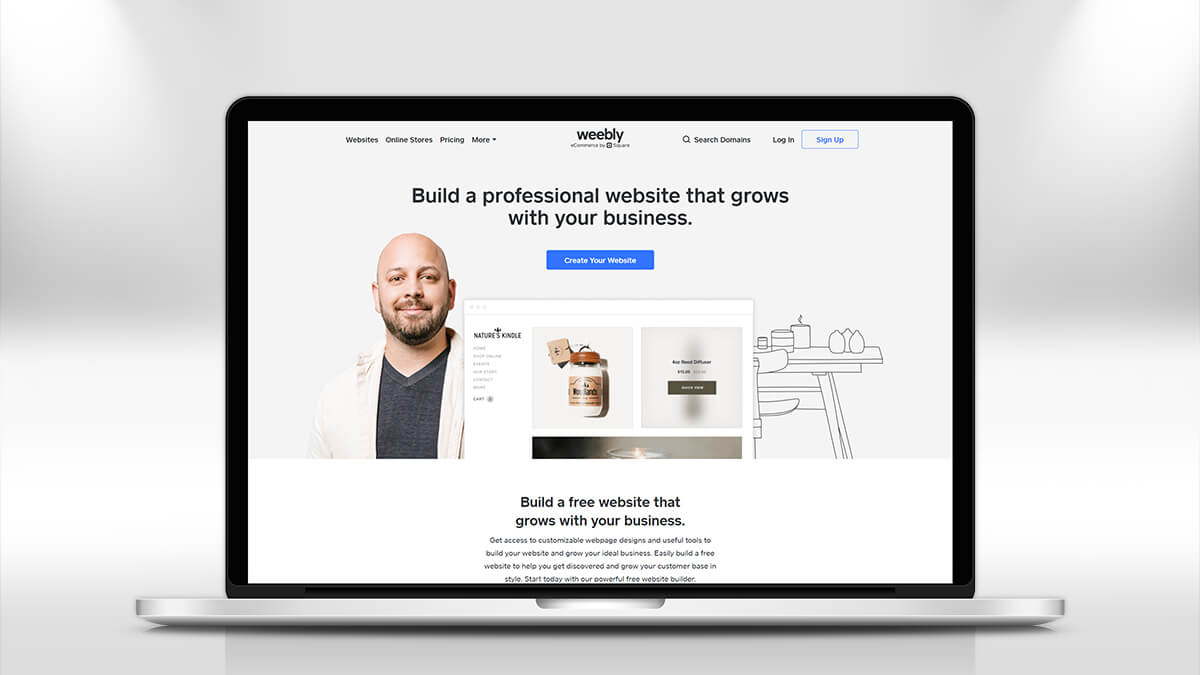
Web hosting, domain registration, web design, and even e-commerce functions are provided by this open-source SaaS, making it ideal for companies and startups. Weebly is a website builder that is exceptionally versatile, compatible with any computer and platform, and simple to use. Weebly, like Wix, has drag-and-drop features, an integrated CMS solution, and HTML files that are hand-coded. The in-house editor comes with Google Analytics and SEO software. For e-commerce firms, Weebly is a smart option with PayPal integration, an automated tax calculator, digital gift cards, and more. And Weebly is ad-free, unlike some of its other free rivals.
3. WordPress
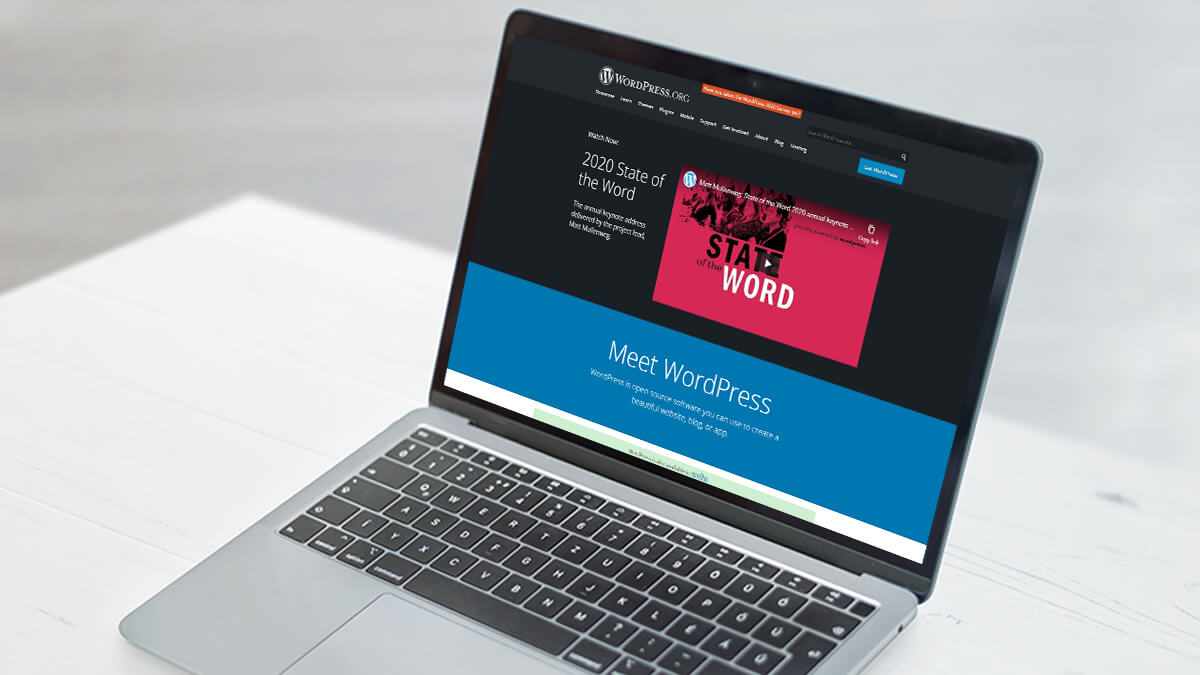
WordPress is a widely used free website builder that enables you to purchase a web domain as well. You can also run your site live with a WordPress-owned URL for those who don’t want to pay for a domain. Like Wix and many of the other builders on this list, you can create visually beautiful websites, blogs, and landing pages with WordPress. You can also put assets on several WordPress sites, including contact forms, images, and embedded content.
WordPress provides an easy-to-understand backend interface with minimal to no coding necessary for those who are less experienced in webpage design. For web editors with less expertise in design, WordPress is particularly lovely. You can create one from a professionally pre-designed template or theme while building sites on this platform, or you can get more technical and personalize your website.
An instance of one of its pre-designed templates is below: Maywood WordPress TemplateWordPress will show you a range of themes that you can preview and try out when you first get started. Then, WordPress will give you a tutorial on how to edit your website once you pick a theme. You can then change your theme quite easily at any time. You can quickly get a plugin if a theme or the WordPress platform doesn’t have anything you’re looking for, like an intricate customer relationship management framework. A plugin is like an add-on function that is WordPress-compatible but is typically controlled by another business.
For example, HubSpot provides a fantastic WordPress marketing plugin that allows you to grab WordPress contacts and send them to HubSpot’s free CRM to track them. This is where you can learn more about the plugin.
4. Website Creator from Elementor
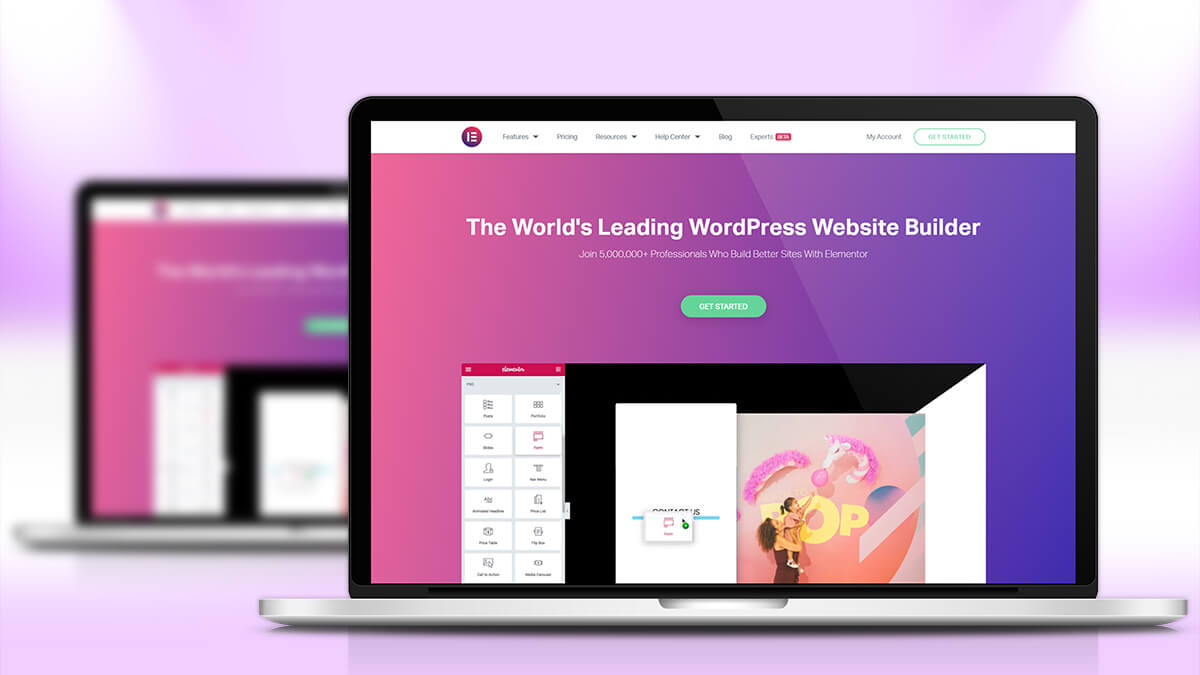
Although WordPress is a great site-building option, it’s nice sometimes to have a little support when you start designing from scratch. That is where a page builder for WordPress can be helpful.
Elementor is trusted by over 5,000,000 users as a drag and drop creator, and it’s a tremendous no-code tool to get a WordPress site off the ground quickly. You can select from hundreds of available templates with the Elementor page builder, customize them, and ensure that your site displays correctly regardless of device size. It’s constructed with design in mind, and without thinking about the underlying code, you can create pixel-perfect pages. While Elementor is free to use and includes 70+ templates, paid plans provide more templates and feature starting at $49.
5. TheWebNode
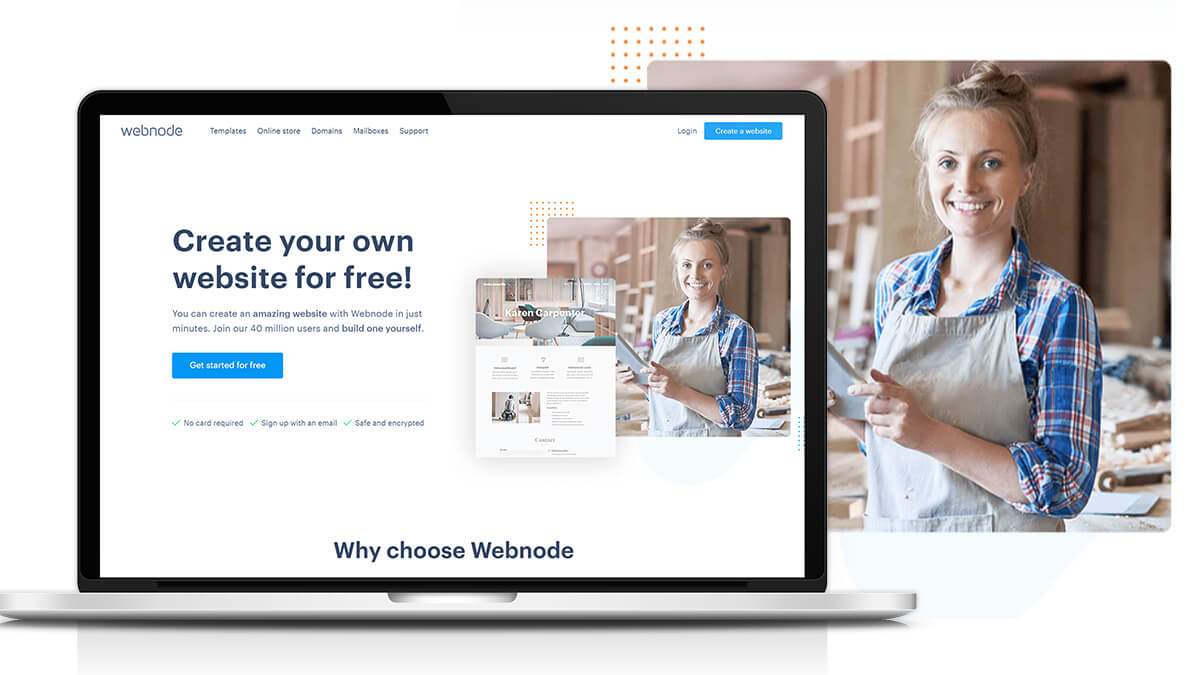
For both personal brands and professionals, WebNode is a standard option — it’s simple to use, and you can build a website in a different language or on a different platform to fit the needs of your company. WebNode supports e-commerce stores, and Android, Mac, and IOS devices are compatible with the pages. WebNode can have statistics to monitor your site’s progress, free of charge, and you won’t have advertising even with the free version.
6. Jimdo
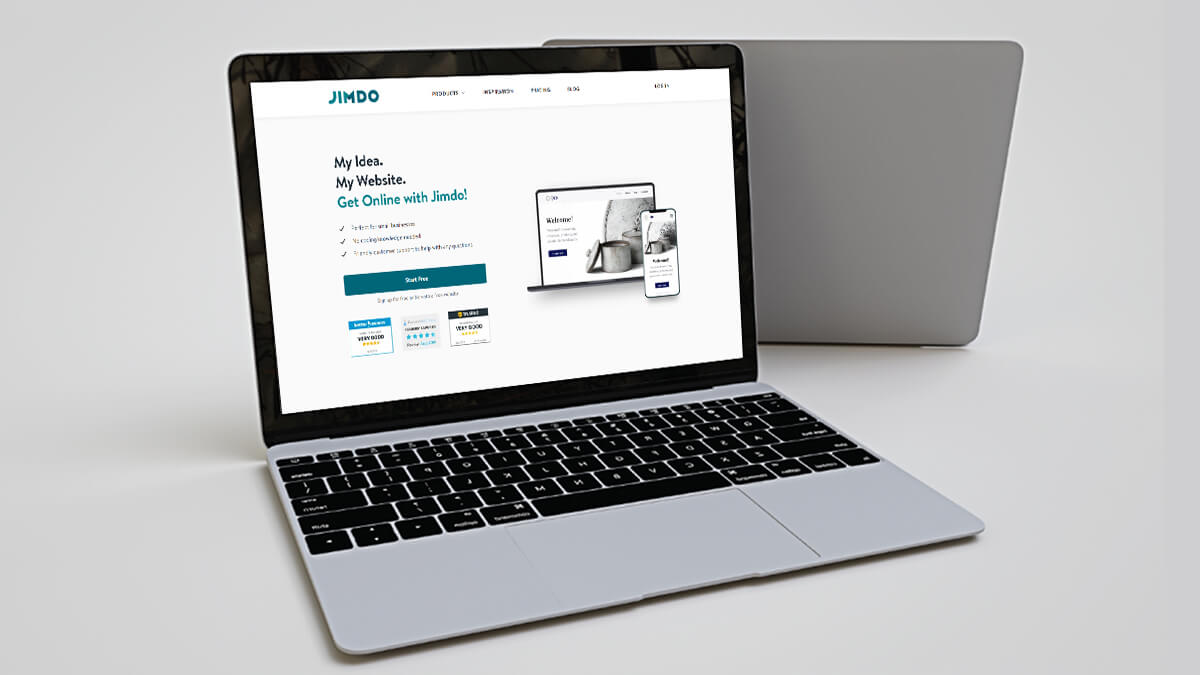
Headquartered in Germany, Jimdo is a practical choice for foreign businesses, with the possibility of establishing a website in more than nine languages. The builder is smartphone and tablet compatible, and you can also use a mobile app to create a mobile-optimized site. You will probably have more than enough space to build your site, with no page limit and 500 MB of space, and it also offers HTTPS/SSL encryption, ensuring your visitor information will be kept secure. Plus, you’re able to incorporate your platform with social media accounts easily. If you plan to use Jimdo, watch out for one thing: the creator prevents search engines from indexing free websites.
7. Mozello
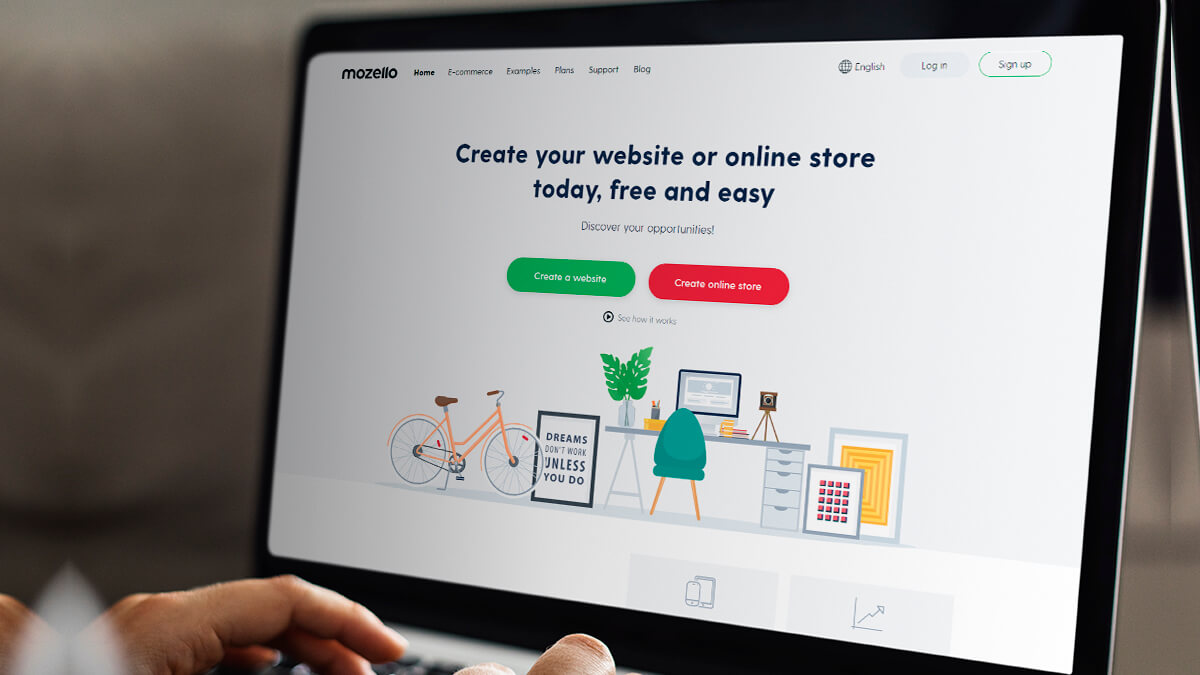
The creator allows you to create a multilingual site for free — something unparalleled by other website builders — one of the most massive selling points for this Latvian-based business. A blog, online shop, SEO choices, and 500 MB of storage are among Mozello‘s features. There is an ad, but it’s just a footer connection, so most visitors will not notice it. The only downside is that the drag-and-drop framework is not as complicated or intuitive as some other options, and there are not many customization options for design.
8. WebStarts

WebStarts makes designing a website as easy as possible with a broad range of beautiful templates and a user-friendly drag-and-drop feature. Best of all, everything you see when your design is exactly what your guests will see when you publish the website. This will take out of the equation some of the guesswork.
9. Webflow
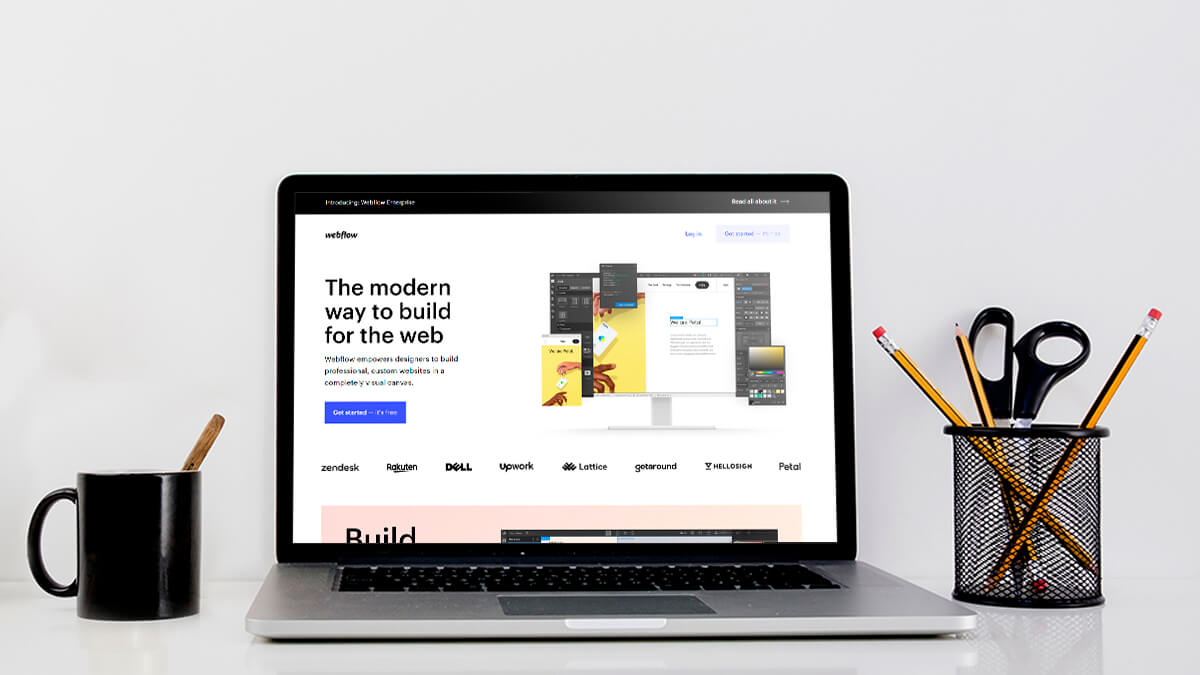
Although most of the other builders in this list are for people without a lot of coding experience, Webflow is primarily for designers and agencies who develop consumer sites—this implies that you have full control of HTML and CSS. You will need to move it to a content management system after you have created a site on Webflow. Some features do not require coding skills, including drag-and-drop widgets for adding social elements, charts, and images. But you’re going to need to know HTML or CSS if you want the full benefits of Webflow.
A small selection of themes, a responsive GUI, and desktops, laptops, or smartphones can be personalized for your Webflow site. One other downside of Webflow, aside from the need to learn code, is that you can only have two sites, and there is a maximum of 500 visits for free users.
10. IM Creator
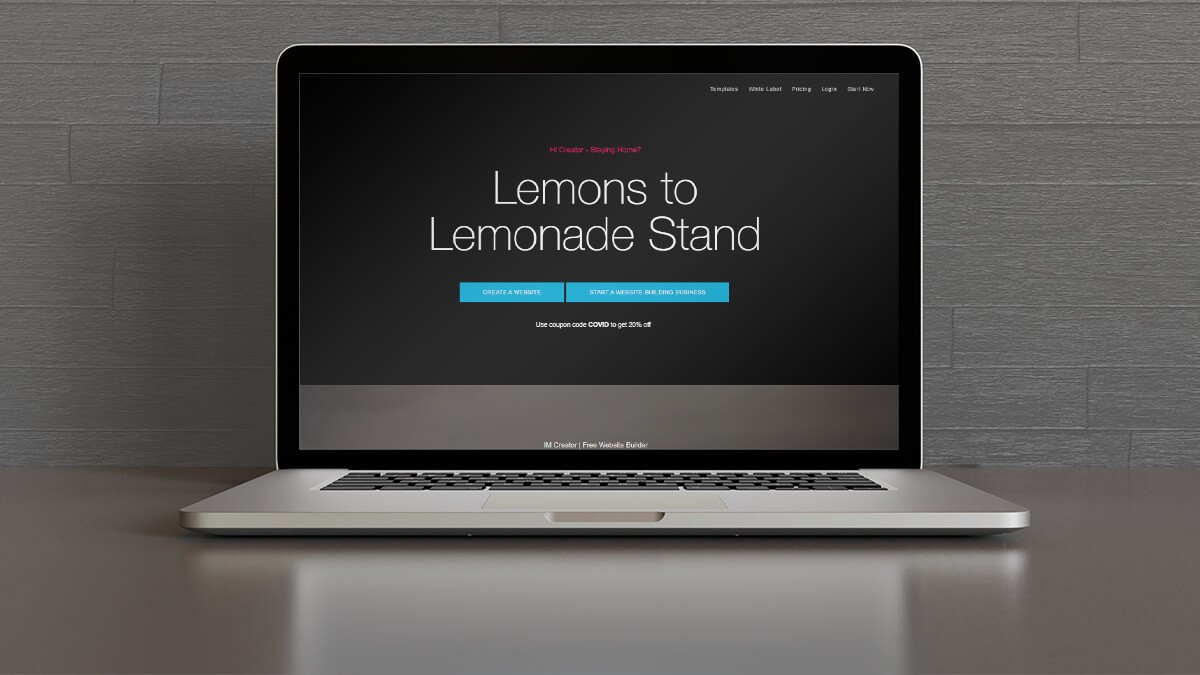
For a few reasons, it is a common choice with more than 11 million sites built on IM Creator: there is a simple point-and-click GUI, a wide range of templates and photos, and unlimited web hosting and domain services. Plus, the platform is flexible, and either single or multipage templates can be available. With its built-in e-commerce software, this builder is unique and provides SEO and Google Analytics to optimize your search engine website completely.
11. SITE123
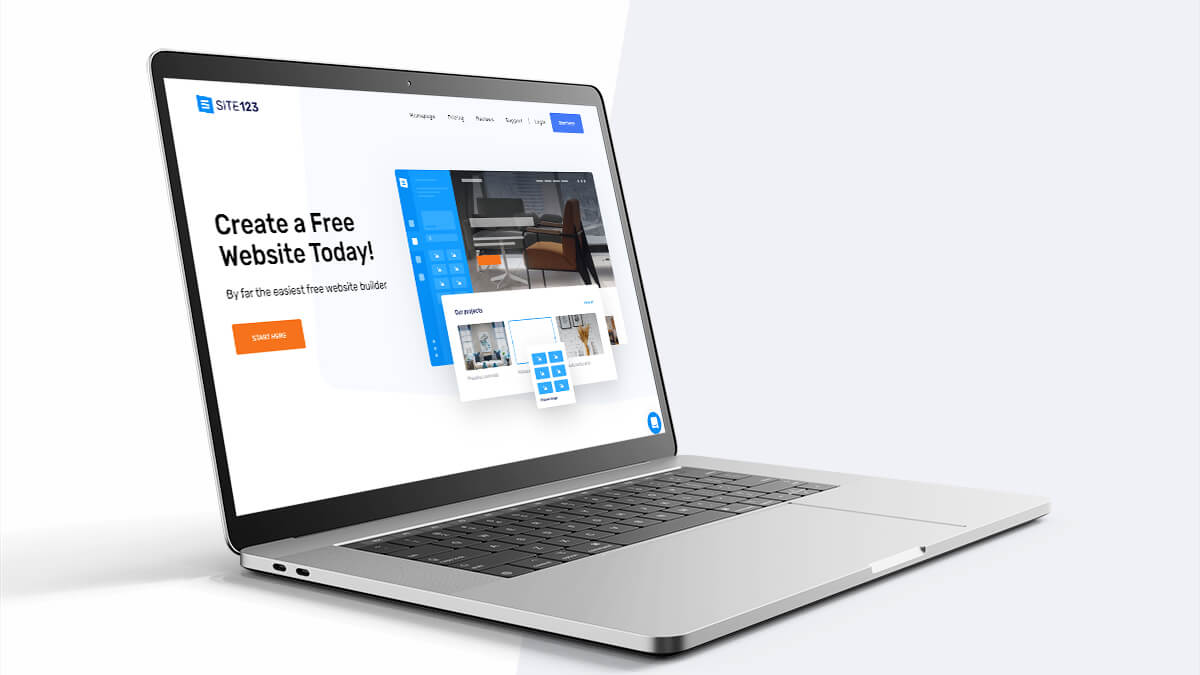
Site123, arguably one of the most versatile and easy-to-use builders, allows you to customize something and provides graphics and models with a one-click installation wizard. With its free image library, professional fonts to add visual elements to your site, and innovative DIY plans for building multiple sites, Site123 stands out as especially helpful (which are unlimited). Plus, since it includes domain registration for web hosting, 500 MB of storage space, Google Analytics, and is ad-free, you would not feel compelled to move to a paid plan.
12. Strikingly
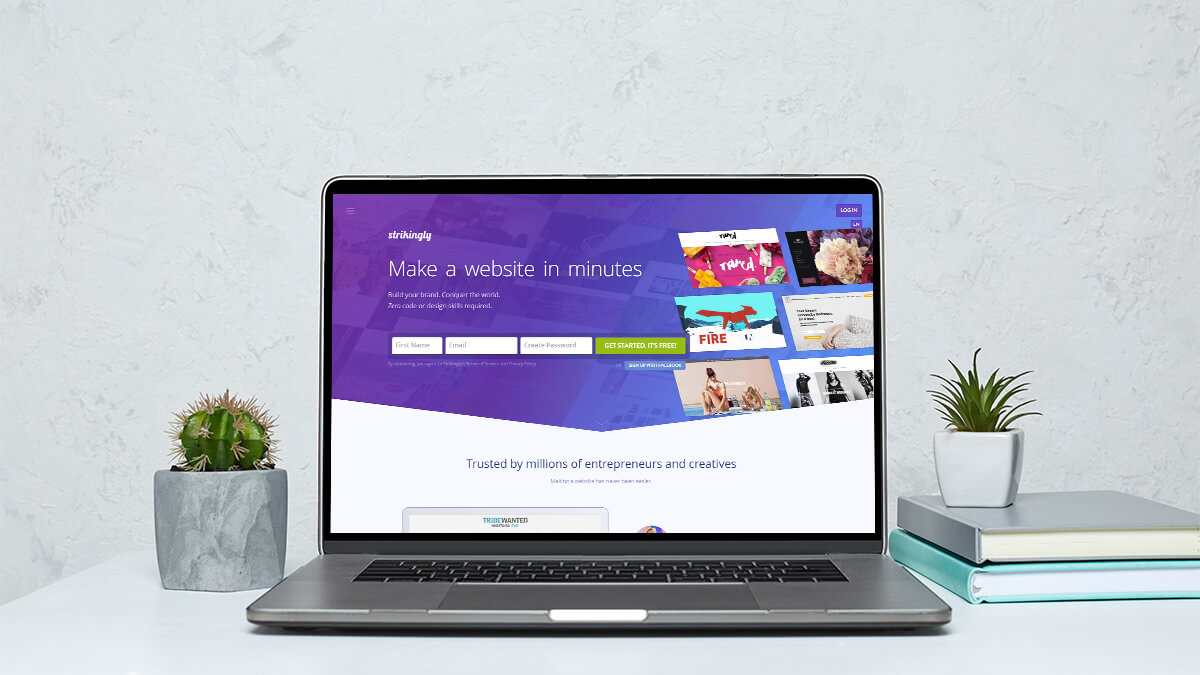
Strikingly proud of helping its users create a website without the need for programming skills. Through this website designer, thousands of sites have been launched, and users can start designing their own by selecting from countless templates submitted by site owners around the globe. Website templates suitable for startups, e-commerce shops, websites, events, launches of products, and personal branding can be found.
The free offering of Strikingly comes with unlimited free pages but a meager 5 GB of monthly bandwidth. You’re still limited to a domain named strikingly.com unless you switch to a paid plan beginning at $8 a month.
13. Duda
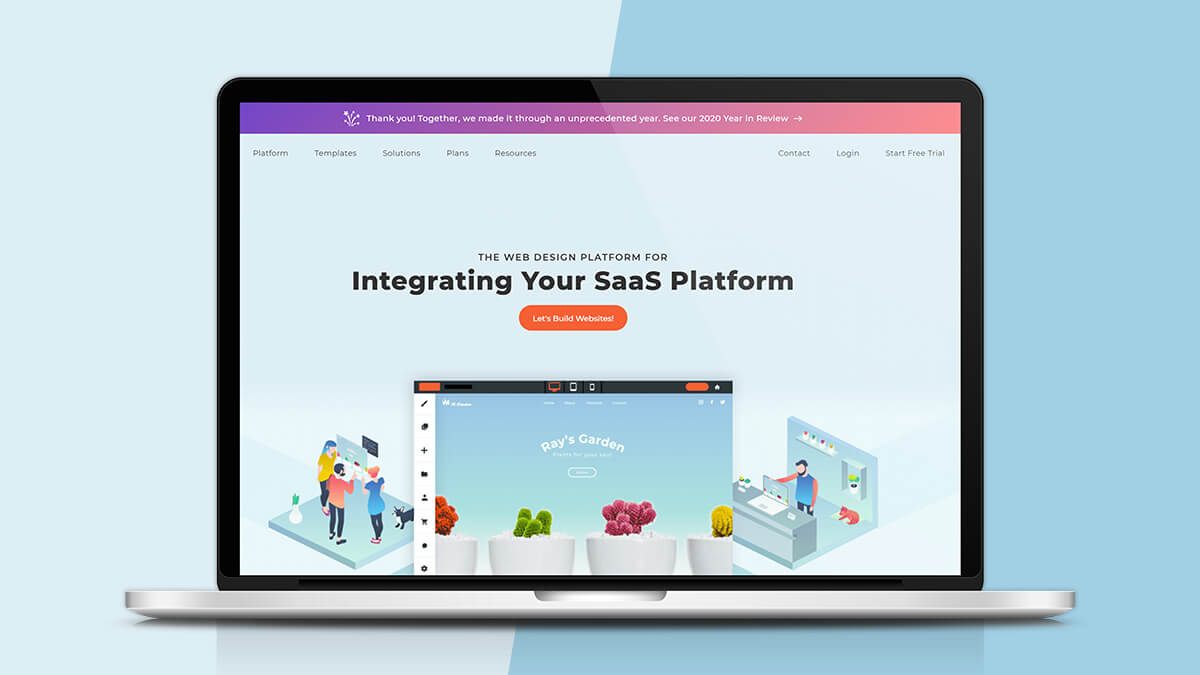
With various site widgets and media files, Duda is a feature-rich website builder, enabling you to create a website to suit your unique needs. Duda comes with a team collaboration platform and simple analytics on top of site templates and a lengthy content library to show you how visitors interact with various sections of your website. Duda provides a free trial and plans to begin at a low annual rate of $14 per month.
14. Squarespace
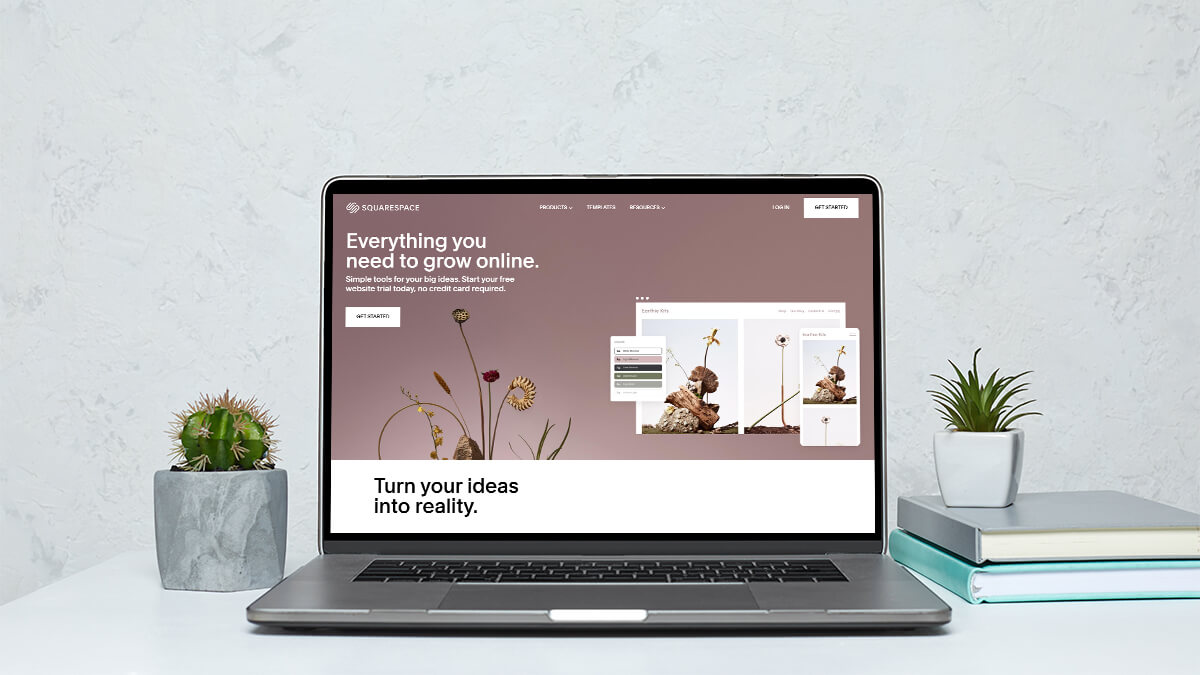
Squarespace is relatively similar to WordPress and Wix in that with its wire-framing features, and it allows you to work off pre-designed themes or create a site from scratch. Squarespace claims to need no plugins while providing its customers with a 24/7 service. Squarespace’s pre-designed themes highlight imagery or video to be ideal for people in the fields of visual media, entertainment, dining, or fashion. Many models, such as the one below, are optimized both for simplicity and versatility. Although simplicity may be complicated for a software company or a company that provides multiple services, it may be perfect for businesses facing consumers who sell goods related to one primary industry.
15. GoDaddy
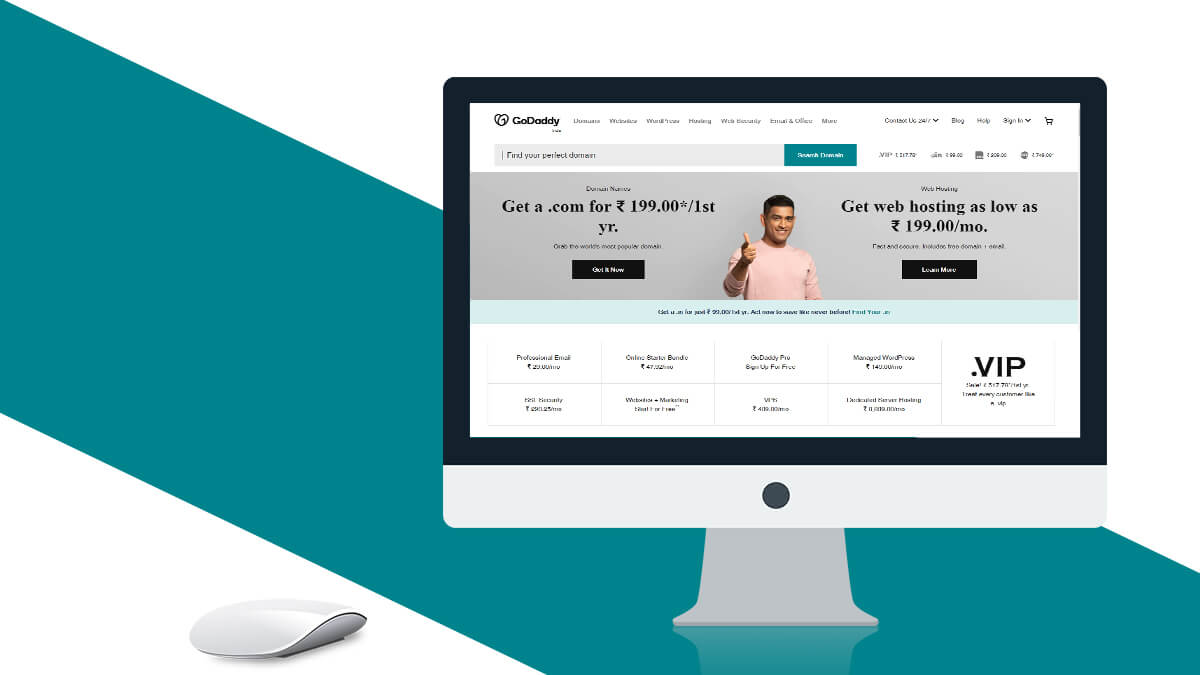
Although GoDaddy is known as a website where you can buy cheap domains, website owners who want to purchase domains and design their site simultaneously have its website builder. GoDaddy Cafe Faba Template the website templates for GoDaddy are quick, clean, and useful. For those who choose to use WordPress software, it can also be posted to WordPress pages.
Choosing Your Website Creator
You’ve got it there! Since all of these website builders are free, check out a few if you are unsure of the best fit. In particular, take note of what you want to get out of your site to guarantee that one of these free builders can fulfill your needs.
